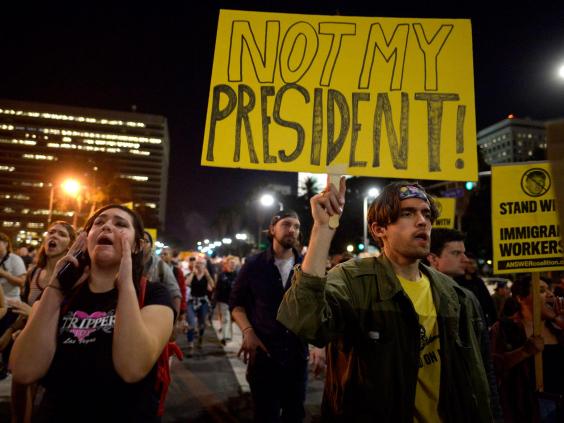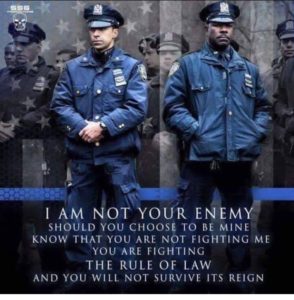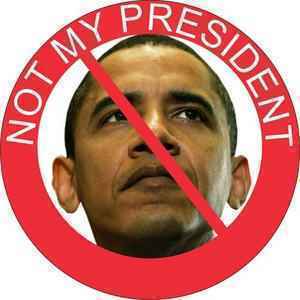“How small, of all that human hearts endure, that part which laws or kings can cause or cure.”
When Samuel Johnson wrote those measured words of welcome consolation, kings generally behaved with more restraint than presidents do now. The essential wisdom of his observation remains intact even our era of world-bestriding chief executives who have access to power not imagined by sages such as Johnson, the Framers who created the office, or, for that matter, unalloyed despots like Lenin and Hitler. Though he presides over a vast apparatus of coercion and punitive violence, the president falls well short of the divine status often imputed to him.
It is difficult for me to comprehend a life so sterile that it becomes meaningless unless it finds validation through the election of a presidential candidate, yet lives of that kind are quite commonplace. This is proven by the flood-tide of pathos resulting from the nation-wide meltdown of campus-dwelling leftist snowflakes – and by the triumphalist gloating from collectivists of a different flavor who believe that the “greatness” of the United States is defined by the identity of the federal government’s executive figurehead.
Frank Herbert’s literary masterpiece was an elaboration on the following insight: “Power attracts pathological personalities. It is not that power corrupts but that it is magnetic to the corruptible.” For all of its substantial flaws the U.S. Constitution does embody, however imperfectly, the insight that corruptible human beings cannot be entrusted with power, especially in an executive capacity.
The presidency, as originally conceived, was custom-designed to be occupied by Washington, who was seen by many Americans as worthy of becoming a hereditary monarch. The Framers, acting on John Locke’s insight that “the reigns of good princes have been always the most dangerous to the liberties of the people,” deprived that office of most of the attributes that would entice those who lusted for power. The president was to be a servant, not a ruler.
Many believed that Washington was well-suited to the exercise of power, but the Framers understood that there is no such thing as a genuinely benevolent ruler. As Locke warned, the acts of such men become inimical to liberty “when their successors, managing the government with different thoughts, would draw the actions of those good rulers into precedent and make them the standard of their prerogative – as if what had been done only for the good of the people was a right in them to do for the harm of the people, if they so pleased….”
This point was made more recently by commentator Jimmy Dore of the progressive news site The Young Turks. During the Democratic primary, Dore – like many of his colleagues — was an outspoken critic of Hillary Clinton. After the nominees were selected, Dore consistently warned that Clinton was not going to prevail against the populist tide that was propelling Trump’s campaign. As a more doctrinaire progressive, Dore preferred Bernie Sanders – but as someone who remembered, and took seriously, his High School civics classes, Dore was more concerned about the dangerously distended powers of the presidency itself.
Speaking in the immediate aftermath of Trump’s victory, Dore emphasized that a Trump administration would inherit from Barack Obama a fully operational police state, with all-encompassing warrantless surveillance and a legal mechanism allowing the indefinite detention of U.S. citizens who are suspected of being “unlawful combatants.”
“We’ve allowed our government to get rid of habeas corpus,” Dore lamented. “We’ve allowed our government to have a complete 24-hour surveillance system. That’s the opposite of liberty. That’s the opposite of freedom.”
“People were warned when they did this,” he continues, but liberals and progressives insisted that “it’s OK, because everybody likes Barack Obama right now. But what happens if there’s a next president – and nobody predicted Trump then, but now here we are.”
Dore and his fellow panelists also noted that by declining to seek the prosecution of officials who committed acts of torture during the Bush administration, Obama effectively decriminalized the practice – which his successor has promised to implement and expand.
Of course, the same lamentation would be offered by conservatives in the election aftermath had Obama’s police state been inherited by Hillary Clinton. In a political environment increasingly defined by Lenin’s maxim that the only relevant question is “Who does what to whom?” neither of those factions is terribly concerned about the “what” in that equation – and the Bill of Rights is supposed to define the “what” in terms of things the government cannot do to the individual, no matter who presides over the executive branch.
The greatness of America is inversely proportionate to the role government plays in the daily lives of its citizens. Hillary Clinton embodied the conceit that no facet of life anywhere on the planet should be a refuge from the totalitarian impulse to “improve” human conduct through the application of state-licensed violence.
Donald Trump’s ambitions aren’t as vast, and he acts out of impulse rather than ideology – specifically, the impulse to punish others. His campaign was devoted to recovering “greatness,” rather than restoring “liberty.” One of his most persistent refrains was “We have no choice” – a phrase that would serve as a coda to a proposal involving torture, or mass deportation, or invasive surveillance of a religious minority, or some other expansion of state power at the expense of the individual. His consistent critique of Obama – who currently presides over a half-dozen foreign military conflicts and has ordered the summary execution of US citizens by drone strikes – is that he is too “weak” in exercising the powers of his office.
A constitutionalist would describe Obama’s weakness as an inability to restrain himself in the exercise of power. Those who understand the state to be a malignant fiction recognize that the exercise of power is itself an unqualified evil. No honest observer will discern in Donald Trump, an individual whose life has been a constant hymn of self-celebration, the smallest hint of a capacity for self-restraint.
Since the Republicans control both houses of Congress, Trump won’t face the external restraints afforded by partisan gridlock. His ignorance of the Constitution being comprehensive, Trump doesn’t understand the legal restraints on the office he will hold. The insouciant disregard for contractual commitments he routinely displayed in his business career indicates that he wouldn’t consider himself bound by those restraints if he did understand them.
Trump’s victory on November 8 shocked people who take opinion polls seriously, but it didn’t surprise those who followed the political prediction markets. Given the superior predictive ability of investment markets, there is ominous significance in the fact that Trump’s victory sent prison stocks skyward in anticipation of a dramatic expansion of what is already the world’s largest carceral system.
The throngs who gleefully chanted “Lock her up!” at Trump rallies are the kind of people who think our country is under-policed and our prisons are under-populated. Hopefully, their fever will eventually break, and they will recover their capacity for reflection. At that point they should consider a parable found in Armando Valladares’s memoir Against All Hope, which describes his decades of captivity in Fidel Castro’s gulag.
For most of his 22 years of incarceration as a political prisoner, Valladares was confined in the “Model Prison” on the Isla de Pinos. It was constructed under the reign of Cuban military dictator Gerardo Machado in the 1930s, and at the time it was regarded as ridiculously outsized, given that Cuba wasn’t overrun by violent criminals.
When his advisors asked why he would order construction of such an unnecessarily large prison, General Machado blithely replied: “Don’t you worry. Somebody will come along who’ll manage to fill it up.”
“That somebody,” Valladares grimly wrote, “was Fidel Castro.”
It has been said that every ruler builds a house another will inherit. A better way of expressing that insight is that every ruler expands the architecture of oppression, thereby fortifying the prison in which his subjects – and their children – will live. This is true even – no, especially — of rulers who supposedly have a democratic mandate to exercise violence on behalf of the collective.
Seven years ago, at the beginning of Obama’s reign, attendants at Tea Party rallies often displayed signs advertising that the occupant of the White House was “Not My President.” Obama’s partisans denounced that sentiment as seditious. The same slogan has now been adopted by participants in anti-Trump tantrums – and the underlying sentiment is now being denounced by people who had once seen that phrase as a form of patriotic poetry.
Apart from employees of the executive branch, or active-duty members of the military who have been called into service by Congress, no American really has a “president.” The office was intended to be peripheral to the daily concerns of Americans, rather than the central focus of their existence. What a wonderful thing it would be if Americans of all persuasions adopted the motto “Not My President” – and then learned to regard the state itself with the proper mixture of hostility and contempt.


































